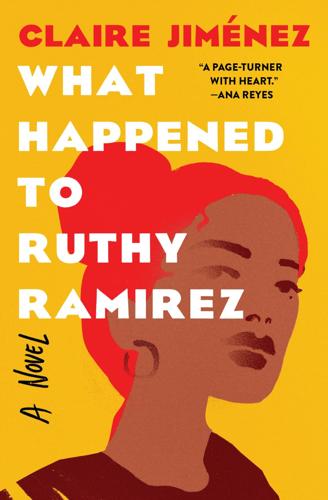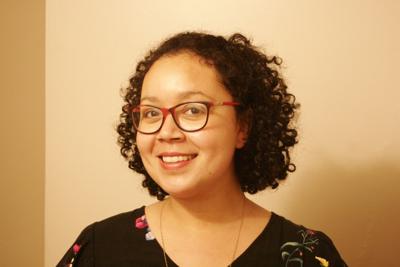COLUMBIA — Though she was crafting stories as a 12-year-old on Staten Island in New York, Claire Jiménez never imagined she'd be an author.
"Even 21-, 22-year-old Claire would be very surprised that I am actually a writer," said the writer, who is a professor of English and African American Studies at the University of South Carolina. "I mean, like very surprised."
But an author she is. Jiménez's debut novel, "What Happened to Ruthy Ramirez," published in 2023, was recently awarded the PEN/Faulkner Prize for fiction, one of the most prestigious awards for writers in America.
"There're lots of wonderful writers who never get their book published by the Big Five or even in smaller presses," Jiménez said. "And so I felt incredibly lucky and full of joy that it had even gotten picked up."
The novel started as a short story while Jiménez was in school. As she completed her master's and went to work on her Ph.D., her story about a missing sister, a broken family and a trashy reality television show expanded into a novel.
"What Happened to Ruthy Ramirez" portrays sisterhood — really, all of womanhood — as a thorny, raw thing that's more bloodshed than beauty.

The paperback cover of "What Happened to Ruthy Ramirez," the debut novel from Claire Jimenez
It's an unflinchingly honest look at life with sisters: the name-calling, the insults that become more and more incisive as they descend into an argument, the whiplash conversations that bounce from anger to love to sympathy and generosity, the heartbreak. It's also an examination of how colonialism, racism and misogyny splinter and warp communities, systems and culture.
The book begins with the day Ruthy Ramirez, the middle sister of a Puerto Rican family living in the Staten Island borough of New York City, disappears in 1996. It picks up eight years later with the youngest sister coming home from college amid the 2008 recession. The father is dead. The eldest sister is overworked and unappreciated. The mother is lost to grief and religion.
The action picks up once the sisters watch the aughts reality show, "Catfight" (imagine "Bad Girls Club" with more fighting and less redemption). One of the contestants, Ruby, has the same birthmark under her eye as Ruthy, the same red hair and prickly personality as 13-year-old Ruthy.
"I watched a lot of 'Bad Girls Club' in my 20s," Jiménez said. "How did these people not get sued?"
The twin themes of the book interlace with each other in a concise, achingly poignant novel of just over 200 pages. Jiménez wove the narrative around Ruthy's disappearance (and its fallout) and representation of women on 2000s-era reality television, particularly Black and Brown women.
Told from the perspectives of Ruthy's mother and two sisters, the novel offers insight into each woman's mind and the struggles they bear each day. The language Jiménez employs to convey internal and external dialogue is exact. It's like reading a transcript from a podcast or a recorded conversation.
"(When) I was in Staten Island, I would take a boat to get to work. And I would sit on the boat and just listen to the way people talk," Jiménez described. Her benign espionage paid off.
The effect of Jiménez's dedication to language is startling. The dialogue isn't shoehorned, there are no great monologues or confessions in the pages of her novel, but they fill the page as if it were a house, bracketed by silences (of all types: angry, sad, contemplative) and make the characters come alive.
Jiménez crafted her characters' voices over many years, but one didn't come together until the final stretch.
Dolores, the family matriarch and a widow, was a character who eluded Jiménez for years. It wasn't until she was in the hospital (where she defended her dissertation), her son barely into his life, that she figured out how Dolores would feel to have lost a daughter without reason or closure.
Her manuscript had already been submitted by her editor, but she asked for it back. Dolores felt the loss more deeply. Jessica, the eldest Ramirez daughter, was not tired enough.
"I am really happy that I had the opportunity to go back to those scenes because I think it made the novel richer," she said.
Jiménez will be honored at the PEN/Faulkner award ceremony in May, where she'll be honored alongside other honorees. The award comes with a $15,000 prize.
But like the characters in her novel, Jiménez is aware that the accolades she's received are rare for a woman of her ilk: a Puerto Rican woman raised in a country that preferred to ignore her and those like her. So she's grateful, for the awards and the success, but she'll never forget.
"I come from a long tradition of Puerto Rican writers whose books are out of print. You know, never, never won awards, right?" she explained. "Not because they weren't good. You know? Those are brilliant writers. Because you're in an industry that's racist."











